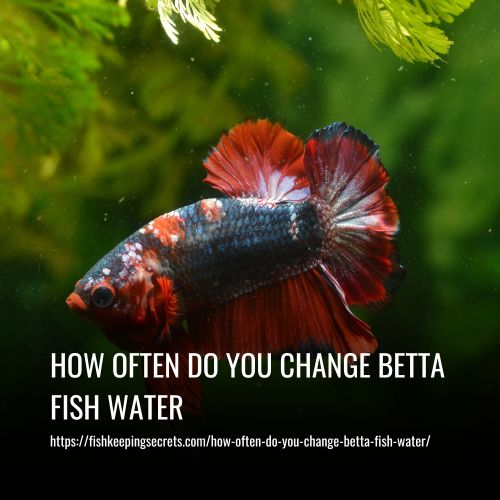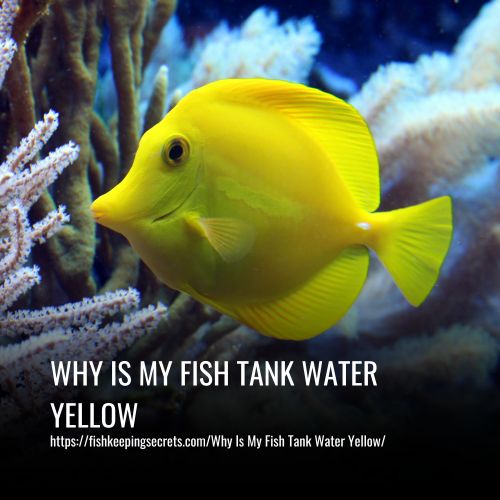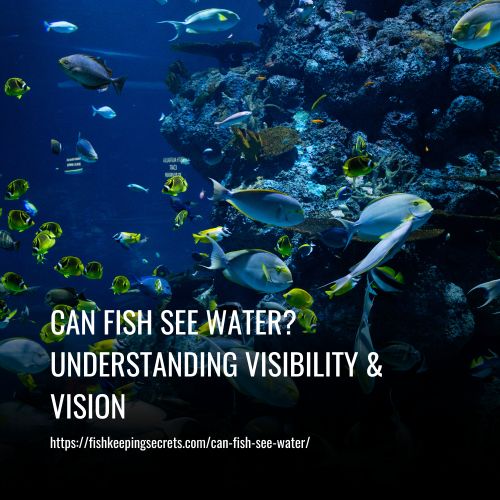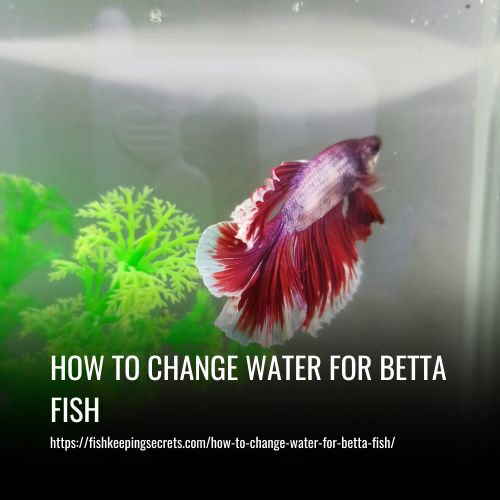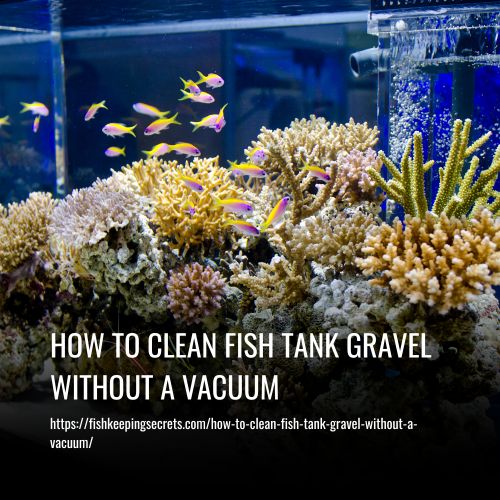Is Green Pond Water Bad for Fish? What You Need to Know
This post contains affiliate links. As an Amazon Associate, we earn from qualifying purchases.
No, green pond water caused by algae is not harmful to fish. It may be more of a nuisance for pond owners who want to admire their fish, but the fish themselves do not mind. In fact, the green water can provide shade and help in keeping the water temperature down on hot days.
The real concern is when pond owners try to treat the green water with algaecides or chemical treatments, which can cause a sudden drop in oxygen levels and harm both the fish and the beneficial bacteria in the pond’s filter system. If using chemicals, it is important to follow the instructions and dosage levels carefully.
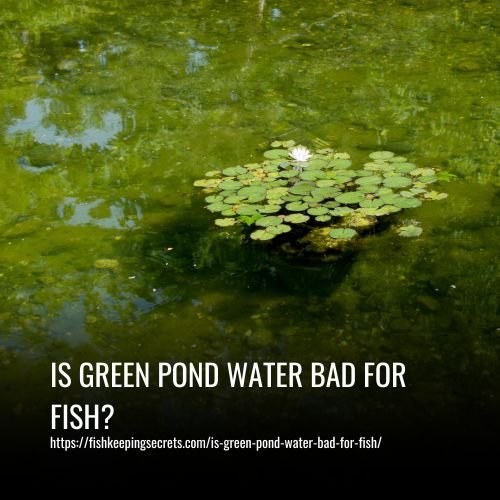
Causes Of Green Pond Water
Green pond water can be caused by several factors, including excess nutrients, dead leaves, and lack of activity in the pond.
1. Excess Nutrients
Green water often forms in winter when there are excess nutrients present in the pond. This provides the algae with the opportunity to thrive. Additionally, if the pond receives ample sunlight throughout the day, it can further promote algae growth. Green water is more likely to occur in ponds with low water movement and filtration, such as when the pond filter is turned off during winter.
2. Dead Leaves
Dead leaves that enter the pond in the fall can contribute to green water in winter. As the leaves decompose, they release tannins and nutrients into the water. These conditions create a favorable environment for algae growth.
3. Lack of Activity
The lack of activity from fish, invertebrates, and other organisms during winter can also lead to green water. Cold water temperatures cause these animals to either die off or enter a dormant state. As a result, they are unable to break down food and nutrients as they normally would. Plants also become dormant during winter and do not consume nitrates and other minerals that algae can feed on. This leaves an excess of nutrients in the water, which algae can take advantage of.
To address green water, it is important to address the underlying causes. This may include improving water movement and filtration, removing dead leaves, and considering the overall health and activity of the pond ecosystem.
How To Clear Green Pond Water
If you’re dealing with green pond water, there are several methods you can use to clear it up. Here are a few options:
1. Water Changes
One of the simplest and most cost-effective methods is to perform regular water changes. This helps dilute the algae and removes some of the nutrients that contribute to its growth. While it may not provide immediate results, consistent water changes can help keep green water under control.
2. Barley Straw
Another natural method is to use barley straw. As the straw breaks down in the water, it releases chemicals that inhibit the growth and reproduction of algae. This method doesn’t directly kill the algae, but it can help prevent it from spreading further and eventually the existing algae will die off.
3. Chemical Treatments
There are various chemicals available on the market that are specifically designed to eliminate green water. However, it’s important to carefully follow the instructions on the bottles and choose products that are safe for fish and other aquatic life. Chemical treatments can be highly effective and provide quick results, but they do come with some risks.
Before deciding on a method to clear green pond water, it’s important to assess the specific needs and conditions of your pond. Consider factors such as the size of the pond, the presence of fish or other aquatic life, and any potential risks or concerns associated with the chosen method.
It may be helpful to consult with a professional or seek advice from experienced pond owners to determine the best course of action for your situation.
How Long Does It Take For Green Pond Water To Clear
The time it takes for green pond water to clear can vary greatly depending on various factors. Factors such as the measures taken to combat green water, the time of year, the amount of available nutrients and light, the amount of filtration and water movement, and the frequency of maintenance and water changes can all influence the clearing time.
If proactive measures are taken to remove green water, such as using barley, it can take about a week or more to see a difference. Chemical treatments may clear the pond overnight, but they may not be safe for pond life, so caution must be exercised when using them.
How To Prevent Green Pond Water
Preventing green pond water is crucial for maintaining a healthy and visually appealing pond. Here are some steps you can take to prevent green water:
1. Keep a Balanced Fish Population
It’s important to have an appropriate number of fish for the size of your pond. Overstocking can lead to excess fish waste, which contributes to the nutrients that cause green water. Keep a manageable fish population to avoid this issue.
2. Avoid Overfeeding Your Fish
Overfeeding your fish can lead to excessive waste in the pond. Both uneaten fish food and fish waste contribute to the nutrient levels that encourage green water. Feed your fish only what they can consume in a few minutes to minimize waste.
3. Provide Shade
Algae thrive in sunlight, so providing some degree of shade in your pond can help prevent the growth of algae. This can be done through the use of floating plants, water lilies, or installing a shade structure.
4. Use Beneficial Bacteria Treatments
Green water is caused by an imbalance of nutrients, particularly nitrates and phosphates. Beneficial bacteria treatments, such as Pond Klear, can help bind together and consume the nutrients that algae feed on, preventing their growth.
5. Keep the Pond Aerated
Aeration devices, such as air pumps or fountains, increase the oxygen levels in the water. This helps beneficial bacteria break down and eliminate algae. Adequate aeration is essential for maintaining a healthy pond environment.
6. Add Pond Plants
Including a variety of aquatic plants in your pond can help absorb nitrates and other nutrients produced by fish waste and uneaten food. This reduces the availability of nutrients for algae, limiting their growth. Consider adding floating plants for shade and submerged plants for oxygen release.
7. Monitor Nutrient Levels
Excessive nutrients, such as nitrates and phosphates, can fuel algae blooms. Regularly test your pond water for nutrient levels and take appropriate measures to maintain a balance. This may include using water treatments or adding beneficial bacteria to control nutrient levels.
8. Regular Pond Maintenance
Regular water changes, filter cleans, and removing debris are essential for preventing green water. Keeping up with these maintenance tasks will help maintain water quality and prevent excessive nutrient buildup.
By following these preventive measures, you can maintain clear and healthy pond water, free from the unsightly green algae.
FAQs
Green pond water refers to a condition in which the water in a pond or aquarium appears green and cloudy due to the presence of particulate algae or plankton. In freshwater, the green water is caused by single-celled plant-like organisms that consume light and nutrients from the water, while producing oxygen. In saltwater, green water is commonly caused by plankton, which are tiny marine animals and plants that feed on nutrients from ocean currents and seaways.
Pond algae refers to any type of algae that can thrive and grow in an outdoor pond. Some of these algae species may also be found in aquariums. However, it’s important to note that not all algae species that can grow in tanks will survive or thrive in an outdoor pond environment, and vice versa. Certain types of algae, like blanketweed, may only grow in ponds and not in home aquariums. Pond algae tends to grow rapidly and can cover plants and filtration systems in the pond. The presence of algae is often more pronounced during the summer months.
Green water in ponds during winter is not uncommon. Certain species of algae, such as diatom algae, are extremely resilient and can survive in various weather conditions, including freezing temperatures. While green water is more commonly seen in summer, its growth during winter is still normal and to be expected.
Pond plants can be both good and bad. They can provide oxygen, filter out waste, and help combat green water problems in the pond. However, if not properly managed, some plants can grow quickly and get out of control. It is important to pot the plants properly and keep them under control to maintain a healthy balance in the pond.
Green pond water can clear on its own, but it depends on the species of algae present in the water. Some algae species may die off naturally during autumn and winter, leading to clearer water. However, other more resilient algae species can survive year-round and continue to thrive, causing the water to remain murky. Without identifying the specific algae species in the pond, it is difficult to determine whether the water will clear on its own or require intervention.
The number of fish you can have in your pond depends on the volume of water. It’s important to research and determine the appropriate amount of fish for your specific pond size. Keeping an appropriate number of fish helps prevent waste overload and reduces the availability of nutrients that can trigger the growth of green water algae.
Uneaten fish food in a pond will decompose and contribute to waste buildup. This can lead to the growth of green water in the pond. To prevent this, it’s important to feed your fish an amount of food that they can consume completely. During the winter months when fish have a reduced appetite, be especially mindful of not overfeeding them.
Aquatic plants such as water lilies, marsh marigold, water hyacinth, water forget-me-not, water mint, and water lettuce are good choices for pond plants that can provide shade. These plants help reduce sunlight exposure, which can be beneficial for controlling algae growth and protecting fish, like Koi, from sunburn.
Yes, increasing oxygen levels can help reduce green water algae. This is because increased oxygen levels promote the reduction of carbon dioxide, which in turn reduces the food supply for algae. As a result, the algae grow at a slower rate. Installing aeration devices such as waterfalls, fountains, or pump and filters can be effective in increasing oxygen levels and combating green water algae.
Yes, you can use liquids to treat green pond water. Flocculants are liquid treatments that clump together the tiny cells of algae, causing them to sink or be trapped and removed by a pump and filter. These treatments are highly effective and can clear the water within hours, but they may need to be used multiple times a year. It is recommended to use a fine mechanical pre-filter in combination with liquid treatments to remove the clumped particles.
Sometimes green pond water can clear up on its own. This can happen when the nutrient levels in the water are high, and the bloom of green water disappears once those nutrients are used up. It is important to note that changing the water can actually make the green water worse, as new nutrients are introduced from the tap water and can feed the next bloom.
Yes, some ponds are more prone to green water than others. Duck ponds are particularly prone to green water because ducks foul the water with their droppings and eat pond plants. Shallow ponds that are in full sun are also highly prone to green water. On the other hand, deep, cool, shaded ponds are less prone to green water. However, with proper filtration and the use of an Ultra Violet Clarifier, any type of pond can be kept clear of green water permanently.
Conclusion
In conclusion, while green pond water may not necessarily be bad for fish, it can indicate an imbalance in the ecosystem that could potentially harm them. Excessive algae growth, caused by an overabundance of nutrients and sunlight, can lead to low oxygen levels and murky water, which can stress or even suffocate fish. It is important for pond owners to monitor water quality and take steps to address the underlying causes of green water, such as adding aquatic plants, reducing nutrient input, or using algaecides in a responsible manner.
Ultimately, maintaining a healthy and balanced pond environment is crucial for the well-being of fish and other aquatic life. By understanding the factors contributing to green water and taking proactive measures, pond owners can help ensure a thriving and sustainable habitat for their fish.

